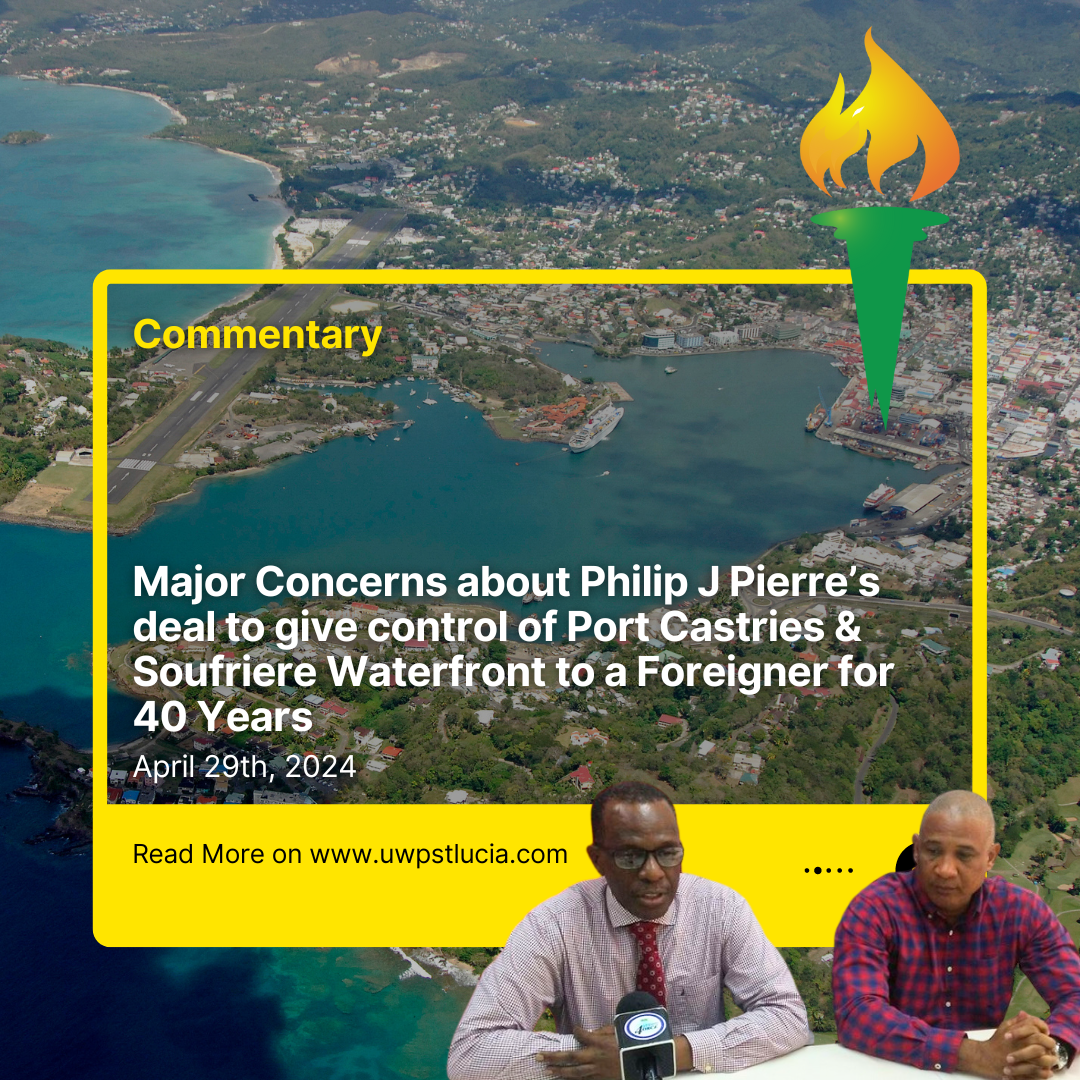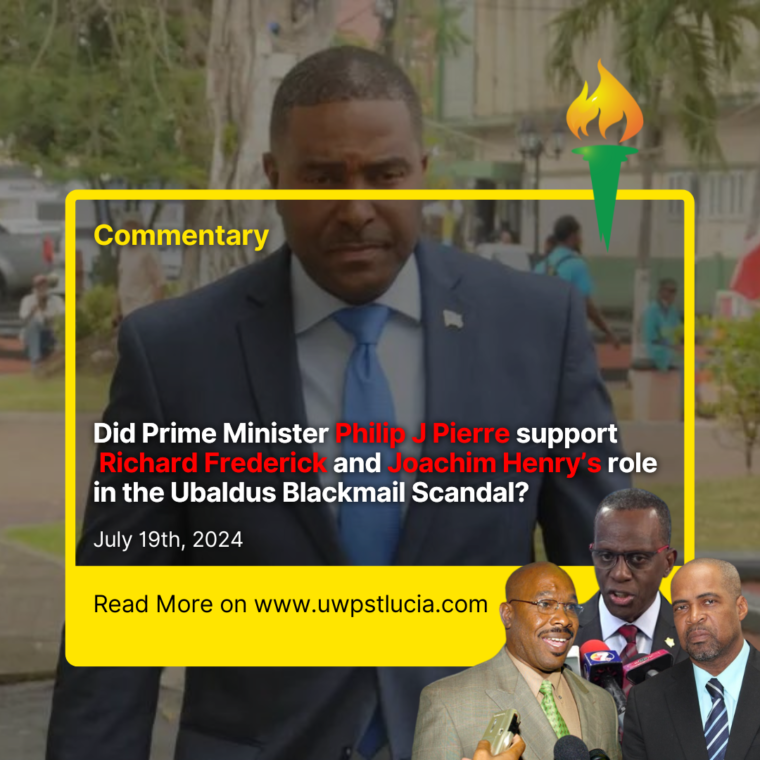Prime Minister Philip J Pierre’s decision to grant a foreign developer control over Port Castries and the Soufrière waterfront for a staggering 40-year period is highly questionable and deserves significant criticism. This move not only raises concerns about the long-term sovereignty of Saint Lucia’s key ports but also raises serious doubts about the fairness and transparency of the decision-making process.
The most glaring issue with this arrangement is the exorbitant financial gain the foreign developer stands to make at the expense of Saint Lucia and its citizens. By assigning the current US$6.50 per cruise ship tourist arrival fee to the developer, Saint Lucia is effectively handing over a significant portion of its tourism revenue for the next four decades. The developer’s own estimation of 1 million cruise ship passenger arrivals per year translates to an astonishing US$6.5 million annually, totaling approximately $700 million EC from Port Castries alone over the contract period. This amount is simply staggering, especially considering the economic challenges faced by Saint Lucia and the urgent need for revenue to support development initiatives and improve the lives of its people.
Furthermore, the developer will also have control over other revenue-generating activities within the cruise port, including tour operator fees, fees from the vendors arcade, and taxi drivers. This grants them unprecedented power and influence over key aspects of Saint Lucia’s tourism industry, potentially undermining the interests of local businesses and stakeholders.
The decision becomes even more egregious when considering the proposed increase in the per cruise ship tourist arrival fee to at least US$10.00, as agreed upon by cruise ship companies. This means that the developer, Global Port Holdings, stands to earn at least EC$1 billion over the next 40 years for a mere US$42 million investment, equating to just US$1.05 million per year. Such a lopsided deal heavily favors the developer at the expense of Saint Lucia’s long-term economic interests.
Moreover, the lengthy duration of the contract raises concerns about accountability and oversight. A 40-year commitment effectively ties the hands of future administrations, limiting their ability to renegotiate terms or address any issues that may arise over the contract period.
Prime Minister Pierre’s insistence on handing over control of Port Castries and the Soufriere waterfront to a foreign developer for 40 years, under such favorable terms, is deeply concerning and warrants immediate scrutiny. The potential loss of revenue and control over key assets poses a significant threat to Saint Lucia’s economic sovereignty and the well-being of its citizens. It is imperative that the decision-making process be transparent and inclusive, with careful consideration given to the long-term implications for the country and its people. #PierreEhCare #PuttingYouWorse #SaveOurSaintLucia


Are Global Leaders and Investors aware that Prime Minister Philip J Pierre endorses Racism?
Has Prime Minister Philip J Pierre told these leaders and businessmen that he endorses Racism? Are they aware that he doesn’t like persons whose skin tones are lighter than his? Philip J Pierre refuses to denounce the continued use of racism by his Ministers and supporters in the name of politics! #PierreEhCare#PuttingYouWorse#SaveOurSaintLucia
Read more
by Content Manager